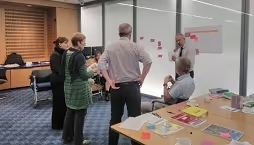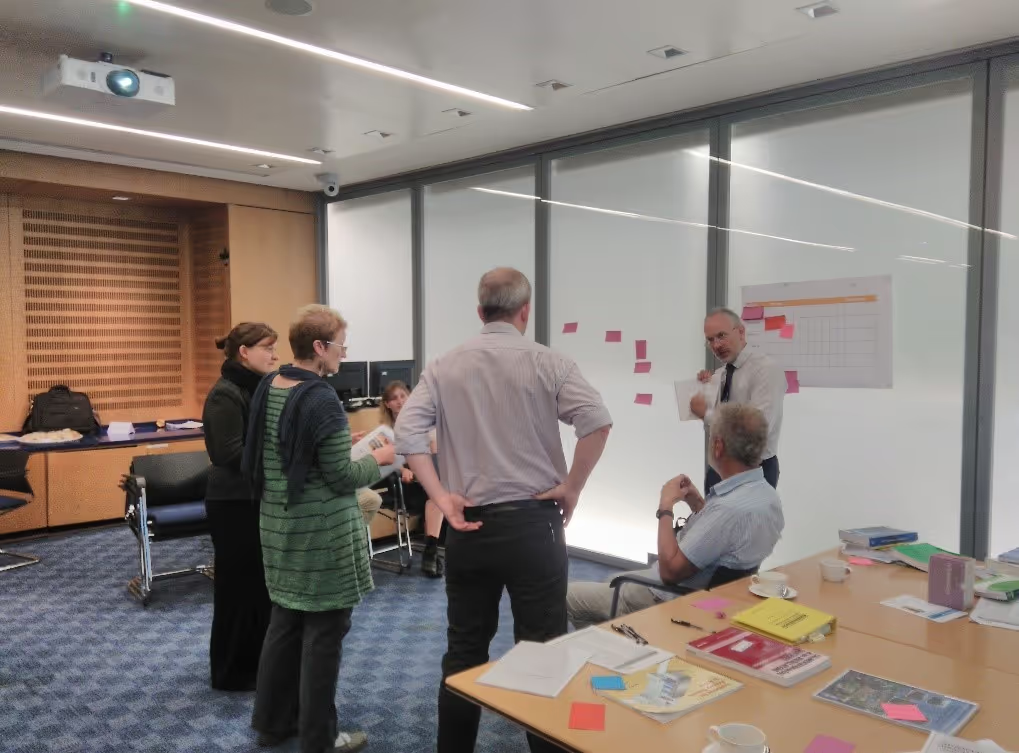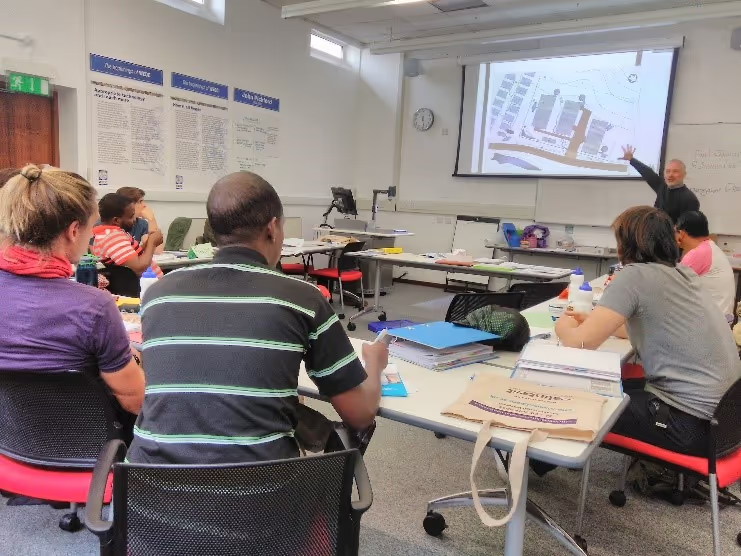Reflections on Phase 1 and Start-up of Phase 2

Inadequate surface water management affects many humanitarian camps worldwide and is linked to health issues (including vector borne diseases), poor access and unpleasant conditions for communities that are often damaging to wellbeing and mental health.
Our project was conceptualised to develop improved guidance for field workers to help implement surface water management solutions in humanitarian contexts, focussing on internally displaced persons (IDPs) and refugee camps. We are a team of partners (including Arup, CIRIA, Oxfam, WEDC, EPG and Illman Young) who have received funding as part of the Humanitarian Innovation Fund’s ‘Surface Water Drainage in Emergencies’ ‘Knowledge Access Challenge’.
Our project started in 2017, and was split into two key phases:
Phase 1 – Scoping Study – undertaken between July and October 2017

We undertook a scoping study to ensure that the final project outputs address the issues practitioners currently experience in the field, when looking to provide solutions to surface water management problems. Through this first phase of the project we have gathered knowledge in available literature and connected with stakeholders across the spheres of drainage and humanitarian relief through a series of surveys, workshops and interviews.
From undertaking Phase 1, we have developed a deeper understanding of the challenges and opportunities faced by practitioners when working within the field and managing surface water.

This knowledge has allowed us to establish a set of guiding criteria for the Phase 2, including the form of the guidance, specific issues the guidance needs to address/consider, key stakeholders we need to engage with and has allowed us to begin mapping the routes for publication and dissemination of the final guidance.
Phase 2 – Guidance Creation – to fully commence in April 2018 and to be completed by December 2018
After a successful Phase 1, we are excited to begin work on the creation of the guidance as part of Phase 2. Through-out this period, we will be looking to engage with a number of humanitarian organisations and sustainable/low-cost surface water management experts to help create a simple and robust toolkit which can be easily used by field-workers to:
- Inform and raise awareness of the philosophy of appropriate surface water management;
- Support practitioners to better understand sites and the constraints and opportunities;
- Enable practitioners to select and design suitable solutions for sites around the world; and
- Review and upgrade surface water infrastructure in existing sites/self-settled contexts.
We hope to keep you updated throughout the year as this project progresses!
If you feel you would be able to contribute to this project or would like to learn more, we would love to hear from you via [email protected]
Stay updated
Sign up for our newsletter to receive regular updates on resources, news, and insights like this. Don’t miss out on important information that can help you stay informed and engaged.
Explore Elrha
Learn more about our mission, the organisations we support, and the resources we provide to drive research and innovation in humanitarian response.


.png)